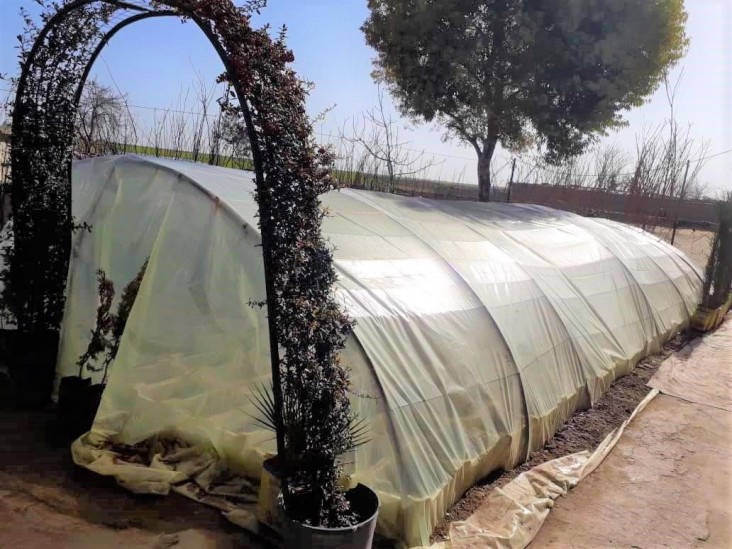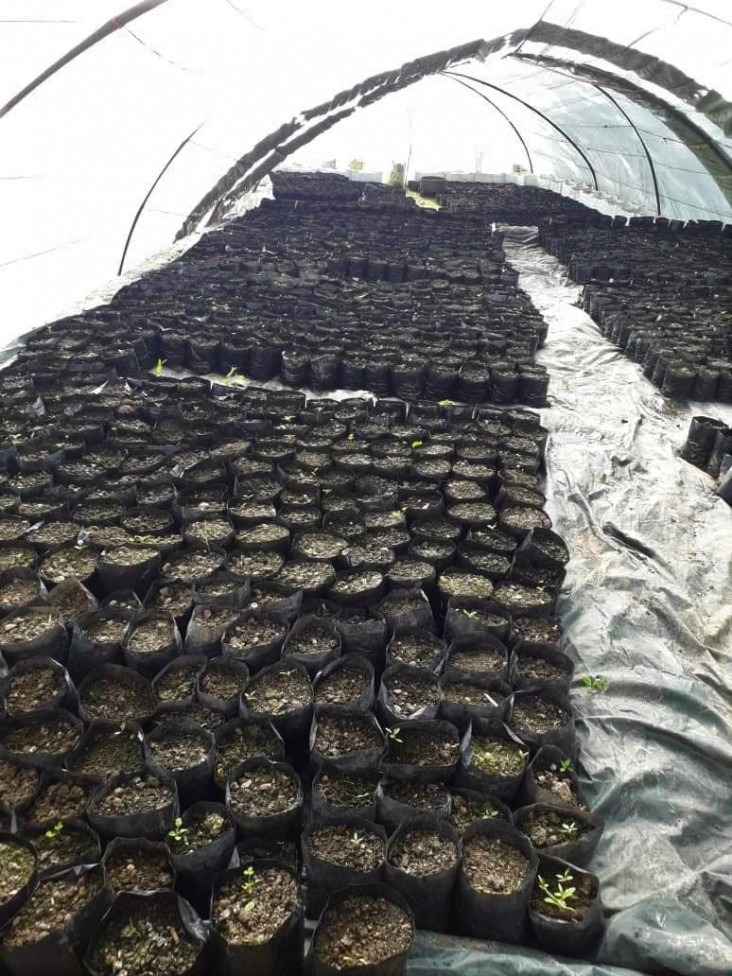Speeches Shim

With USAID support, Syrian farmers can purchase the tools they need to grow and sell in-demand produce.
Before the war, Syria produced and exported a wide variety of fruit, vegetables, and wheat. Years of conflict devastated the country’s agricultural sector and the many Syrians who rely on related industries.
Khalid* is a farmer in the Hasaka Governorate of northeast Syria. The primary breadwinner for his family, he long hoped to build a small greenhouse on his land so he could grow summer crops, but he did not have the money. In northeast Syria, summer crops – primarily vegetables – are difficult to grow due to the seasonal heat and low rainfall, but they are often the most profitable crops for Syrian farmers.
Khalid’s options were limited, until he learned about an opportunity for agricultural training and small grants from USAID’s Advancing Agricultural Markets in Syria (AAMS) program, implemented by the Near East Foundation. He applied, hoping the support would allow him to build his greenhouse.

Along with dozens of farmers from his community, Khalid attended training sessions and obtained grant money to pay farming expenses. He purchased seeds, seedlings, and all the necessary materials to build a greenhouse.
Khalid successfully cultivated his 3 donums (about 0.7 acres) of land, producing 5,000 plants including eggplants, tomatoes, and cucumbers. USAID support also allowed him to prepare for the winter wheat crop, and repeat his summer greenhouse success next year. Now that Khalid has the resources to successfully cultivate summer crops, he and his family have additional income - and his community has more fresh produce available. To date, the AAMS project has helped more than 1,400 Syrian farmers, like Khalid, improve their skills and get resources to return to farming.
* Pseudonym

Comment
Make a general inquiry or suggest an improvement.